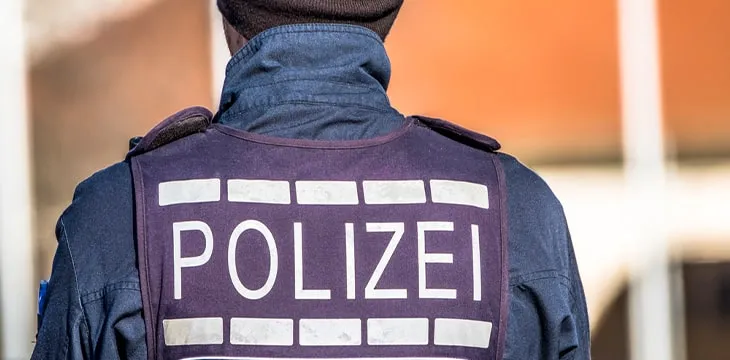|
Getting your Trinity Audio player ready...
|
In November 2020, just as the city was about to enter lockdown due to a COVID-19 outbreak, an alleged Islamic State sympathizer walked into Vienna city center and opened fire. Kujtim Fejzulai, armed with a handgun, an automatic rifle, and a machete, killed four people, and injured 23 others before being killed by Austrian police at the scene. Authorities soon labeled the attack an act of Islamic terrorism.
Now, German federal police claim two men who possibly assisted the gunman used cryptocurrency exchange Binance.
More details on the Binance story
Here’s what we know so far from information made publicly available:
- The two men are understood to be Drilon G, from Germany, and Blinor S, from Kosovo. Their full names have not been made available.
- Blinor S used a bank account to facilitate several Binance transactions, according to the police, while a Binance verification code was found on the phone of Drilon G.
- It’s understood that the German federal police have requested details of all transactions linked to the pair. This information has been requested in connection with potential terrorist attack planning.
- Binance did not respond to an initial request for comment by Reuters, which broke the news, but its CEO Changpeng Zhao took to social media to dismiss the report as FUD.
https://twitter.com/cz_binance/status/1484556776771325957
Zhao later tweeted that while the cryptocurrency exchange is being linked to the bad guys, the bank is not, even though they use the “same or stronger” AML tools as banks. Binance only recently began complying with AML/KYC rules when regulators in Europe, America, and Asia put immense pressure on them to do so.
It’s important to note that neither of the men has been charged or arrested with any crime at this stage. However, the prosecutors’ office has named the pair as “suspected accomplices in the attack.”
The importance of law and the myth of crypto-utopia
These events underscore that following the law is important.
While it’s important not to stifle innovation and to take a moderate approach to regulation, it’s also crucial that KYC/AML rules are followed and that the importance of Combatting the Financing of Terrorism (CFT) regulations are understood and taken seriously across the industry.
Far from liberating well-meaning anarchists to conduct peaceful trade outside the oppressive eye of the state, the anonymous transactions promoted throughout the industry make it easier for bad actors, such as terrorists, to obtain financing and make it much more difficult for authorities tasked with protecting the public to do so.
However, Bitcoin was never designed to facilitate anonymous transactions that would make it easier for terrorists like Fejzulai to kill and maim innocent people. It was designed to make their lives harder and to ensure the prosecution of their accomplices should they carry out such attacks.
Follow CoinGeek’s Crypto Crime Cartel series, which delves into the stream of groups—a from BitMEX to Binance, Bitcoin.com, Blockstream, ShapeShift, Coinbase, Ripple,
Ethereum, FTX and Tether—who have co-opted the digital asset revolution and turned the industry into a minefield for naïve (and even experienced) players in the market.

 07-12-2025
07-12-2025 





